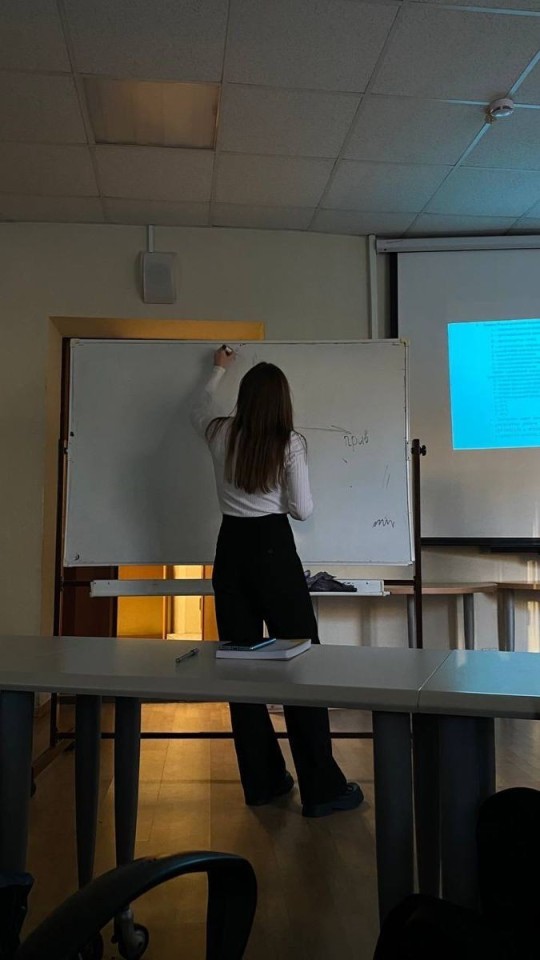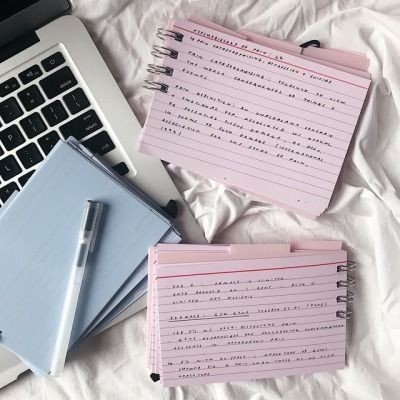1. The Power Of A Minimalist Study Space
Mastering academic excellence
Becoming an academic weapon is about more than just studying hard, it’s about studying smart.


1. The power of a minimalist study space
Your study environment plays a crucial role in your ability to concentrate and absorb information. A cluttered desk or disorganized room can lead to distractions, stress, and reduced productivity. On the other hand, an orderly and minimalist space promotes clarity of thought and focus.
Why Minimalism Matters
Reduces Distractions A minimalist setup limits visual and mental distractions. With fewer items in your field of vision, your brain can focus more on the task at hand.
Promotes Calmness An organized space creates a sense of calm, reducing stress and anxiety, which are common barriers to effective studying.
Enhances Efficiency Knowing exactly where your materials are saves time and keeps you in the flow of your work, avoiding interruptions caused by searching for misplaced items.
How to Create the Ideal Study Space
Declutter Regularly Keep only essential items on your desk. Store books, papers, and other materials neatly in drawers or shelves.
Personalize Mindfully Add a few personal touches, like a plant or a motivational quote, but avoid overloading your space with unnecessary objects.
Ensure Comfort Choose a comfortable chair, good lighting, and a desk at the right height to prevent physical discomfort during long study sessions.


2. Mastering active learning techniques
Active learning is the cornerstone of effective studying. Unlike passive methods, such as simply reading or highlighting, active learning engages multiple areas of your brain, enhancing comprehension and retention.
Key Active Learning Techniques
Summarization After reading a section of your textbook or attending a lecture, summarize the main points in your own words. This forces you to process the information deeply, improving understanding and memory.
Self-Testing Regularly quiz yourself on the material. This not only reinforces your knowledge but also highlights areas where you need further review. Tools like flashcards or apps such as Anki can be particularly effective.
Teaching Others Explaining concepts to others is one of the best ways to solidify your understanding. This could be done with a study partner, in a group setting, or even by teaching an imaginary audience.
Mind Mapping Create visual representations of the material, such as diagrams or mind maps. This technique helps you see connections between ideas and organizes complex information into a more digestible format.


3. Study aids for enhanced learning
Study aids are tools and resources that can support and enhance your learning process. When used correctly, they can make studying more efficient and effective.
Types of Study Aids:
Flashcards Ideal for memorization, flashcards help reinforce knowledge through active recall and spaced repetition. Digital flashcards allow for easy organization and accessibility on the go.
Mind Maps These visual tools help break down complex concepts and illustrate relationships between ideas, making it easier to grasp and remember large amounts of information.
Practice Tests Taking practice exams familiarizes you with the format and types of questions you might encounter, reducing test anxiety and highlighting areas for improvement.
Educational Apps Numerous apps cater to various aspects of studying, from organization (Notion, Evernote) to subject-specific learning (Duolingo for languages).
How to Use Study Aids Effectively
Incorporate Them Regularly Don’t wait until the last minute to use study aids. Regular integration into your study routine ensures continuous reinforcement of material.
Customize Your Tools Tailor flashcards, mind maps, and other aids to suit your learning style and the specific material you need to master.
Combine Methods Use a mix of study aids to address different types of content and to keep your study sessions dynamic and engaging.


4. Staying Healthy
MENS SANA IN CORPORE SANO
The ancient adage "mens sana in corpore sano," meaning "a healthy mind in a healthy body," underscores the importance of physical well-being in achieving academic success. Neglecting your health can lead to burnout, decreased cognitive function, and lower academic performance.
Physical Health and Academic Performance
Nutrition A balanced diet fuels your brain, improving concentration, memory, and energy levels. Incorporate brain-boosting foods like fruits, vegetables, nuts, and fish rich in omega-3 fatty acids.
Exercise Regular physical activity increases blood flow to the brain, enhances mood through the release of endorphins, and reduces stress. Even short, daily exercise sessions can make a significant difference in your mental clarity and stamina.
Sleep Adequate sleep is essential for memory consolidation and cognitive function. Aim for 7-9 hours of quality sleep each night to ensure you are well-rested and ready to tackle your studies.
Mental Health and Academic Success
Stress Management Practice mindfulness techniques such as meditation or deep breathing to manage stress. Regular breaks during study sessions can also prevent burnout.
Work-Life Balance Ensure you have time for relaxation and social activities. A balanced life contributes to mental well-being, which in turn supports academic success.
Positive Mindset Cultivate a growth mindset, viewing challenges as opportunities for growth rather than as obstacles. This perspective not only enhances resilience but also keeps you motivated in your academic pursuits.
[photos from Pinterest]
More Posts from Mr-froggio and Others








somewhere between spiritual awakening and a master’s degree in cuntology
Be high maintenance to be low maintenance: a checklist


daily
- AM and PM skincare
- shower (cold shower for the last 3 minutes)
- moisturize !!!
- floss, mouthwash, brush teeth, clean your tounge
- walk 6-10k steps
- 7-9 hours of sleep
- take your supplements
- drink 1,5-2 liters of water
weekly
- shape eyebrows
- wash hair 2-3 times
- exfoliate your body
- face, hair, feet and hand masks
- hair oiling
- full body shave (face and body)
- change bedding
- clean your room
monthly
- deep clean your room
- everything shower
- mani and pedi
- hair trim (every 3 months)
- teeth withening
- hair glossing
- laser hair removal
annually
- dentist appointments
- doctor checkups
- clean out your closet
- set goals for yourself
one of the biggest things I can advocate for (in academia, but also just in life) is to build credibility with yourself. It’s easy to fall into the habit of thinking of yourself as someone who does things last minute or who struggles to start tasks. people will tell you that you just need to build different habits, but I know for me at least the idea of ‘habit’ is sort of abstract and dehumanizing. Credibility is more like ‘I’ve done this before, so I know I can do it, and more importantly I trust myself to do it’. you set an assignment goal for the day and you meet it, and then you feel stronger setting one the next day. You establish a relationship with yourself that’s built on confidence and trust. That in turn starts to erode the barrier of insecurity and perfectionism and makes it easier to start and finish tasks. reframing the narrative as a process of building credibility makes it easier to celebrate each step and recognize how strong your relationship with yourself can become
I Definitely Care


The clouds looking so beautiful 😍



oh wow



Rooftops in the Snow (Snow Effect), Gustave Caillebotte, 1878

*starts fucking sobbing*
-
 parttimereptile liked this · 3 weeks ago
parttimereptile liked this · 3 weeks ago -
 vkivesdump liked this · 4 weeks ago
vkivesdump liked this · 4 weeks ago -
 youbetterneverknow liked this · 1 month ago
youbetterneverknow liked this · 1 month ago -
 pvorth liked this · 1 month ago
pvorth liked this · 1 month ago -
 sheisjudy liked this · 1 month ago
sheisjudy liked this · 1 month ago -
 pearl140 liked this · 1 month ago
pearl140 liked this · 1 month ago -
 fantasticbananamongerrebel liked this · 1 month ago
fantasticbananamongerrebel liked this · 1 month ago -
 charmnotes liked this · 2 months ago
charmnotes liked this · 2 months ago -
 carmen-of-india liked this · 2 months ago
carmen-of-india liked this · 2 months ago -
 clearvessel liked this · 2 months ago
clearvessel liked this · 2 months ago -
 yah-daddy liked this · 3 months ago
yah-daddy liked this · 3 months ago -
 formalde-hydexc liked this · 3 months ago
formalde-hydexc liked this · 3 months ago -
 cherrypeachybunny liked this · 3 months ago
cherrypeachybunny liked this · 3 months ago -
 negrasangrecaliente liked this · 3 months ago
negrasangrecaliente liked this · 3 months ago -
 studability reblogged this · 3 months ago
studability reblogged this · 3 months ago -
 ohsunlight liked this · 3 months ago
ohsunlight liked this · 3 months ago -
 constancegoianesia reblogged this · 3 months ago
constancegoianesia reblogged this · 3 months ago -
 thelastshowg1rl liked this · 3 months ago
thelastshowg1rl liked this · 3 months ago -
 florimel liked this · 3 months ago
florimel liked this · 3 months ago -
 sapphicthoschei liked this · 3 months ago
sapphicthoschei liked this · 3 months ago -
 nikkiwolfthorne reblogged this · 3 months ago
nikkiwolfthorne reblogged this · 3 months ago -
 nikkiwolfthorne liked this · 3 months ago
nikkiwolfthorne liked this · 3 months ago -
 hopeheavens liked this · 3 months ago
hopeheavens liked this · 3 months ago -
 nadjacestmoi liked this · 4 months ago
nadjacestmoi liked this · 4 months ago -
 vaseki reblogged this · 4 months ago
vaseki reblogged this · 4 months ago -
 classyvimto liked this · 4 months ago
classyvimto liked this · 4 months ago -
 loverrthings liked this · 4 months ago
loverrthings liked this · 4 months ago -
 dragonriddler liked this · 4 months ago
dragonriddler liked this · 4 months ago -
 luafeiticeira liked this · 4 months ago
luafeiticeira liked this · 4 months ago -
 mjmagicc reblogged this · 4 months ago
mjmagicc reblogged this · 4 months ago -
 mjmagicc liked this · 4 months ago
mjmagicc liked this · 4 months ago -
 my3amthoughtsexactly reblogged this · 4 months ago
my3amthoughtsexactly reblogged this · 4 months ago -
 my3amthoughtsexactly reblogged this · 4 months ago
my3amthoughtsexactly reblogged this · 4 months ago -
 sassybaby777 liked this · 4 months ago
sassybaby777 liked this · 4 months ago -
 agr8fire liked this · 4 months ago
agr8fire liked this · 4 months ago -
 blue-rock-on-a-blue-bus-2 reblogged this · 4 months ago
blue-rock-on-a-blue-bus-2 reblogged this · 4 months ago -
 fatwlove reblogged this · 4 months ago
fatwlove reblogged this · 4 months ago -
 lightofthestar reblogged this · 5 months ago
lightofthestar reblogged this · 5 months ago -
 diligentclassroom liked this · 5 months ago
diligentclassroom liked this · 5 months ago -
 tanya27051999 liked this · 5 months ago
tanya27051999 liked this · 5 months ago -
 mayda-y liked this · 5 months ago
mayda-y liked this · 5 months ago -
 marvelblog123 liked this · 5 months ago
marvelblog123 liked this · 5 months ago -
 magicsoccs liked this · 5 months ago
magicsoccs liked this · 5 months ago -
 weepingoceans liked this · 5 months ago
weepingoceans liked this · 5 months ago -
 leliuriumm liked this · 5 months ago
leliuriumm liked this · 5 months ago
